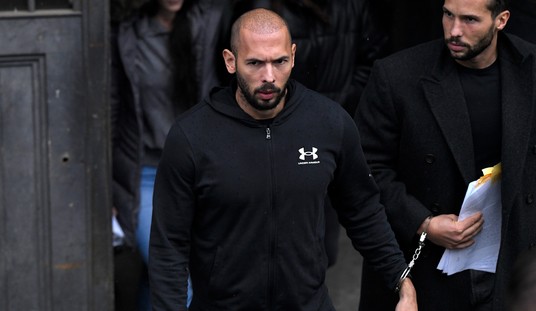“Colorado is no longer politically purple. Nope. These days it’s somewhere between Air Force and Midnight on the blue scale.”
Curtis Hubbard, editor of the editorial page for the Denver Post, declared the above earlier this year in an article detailing the success of progressive Democrats in legislating restrictions on the 2nd Amendment, providing in-state tuition to illegal immigrants, and enshrining into law the long sought after civil unions.
Hubbard goes on to brush off the potential for pushback from the state’s conservative voters due to Democratic overreach by making the claim, sans any evidence, that these policies enjoy “wide public support.” This comes as no surprise, the Denver bubble is thick enough to protect against a nuclear attack from North Korea, if only they could find Denver on a map.
While it is true that recent elections have trended in favor of Democrats within the state, and the make up of Colorado’s government has Democrats in charge of all the levers of power, it disregards one of the fundamental laws of politics: The Pendulum Swings.
The 2010 and 2012 election cycles were mixed bags for Republicans and Conservatives in Colorado. In both cycles the top of the ticket was less than helpful for the GOP.
2010 saw the complete meltdown brought on by Dan Maes and Tom Tancredo, yet the voters still saw fit to elect Scott Gessler, a Republican, as the Secretary of State over the incumbent Democrat Bernie Buescher. In 2012, despite a rather lackluster campaign by Mitt Romney, Colorado saw Scott Tipton, Cory Gardner, Doug Lamborn, and Mike Coffman elected back to the U.S. Congress.
Heading into the 2014 election cycle there are issues that the GOP is winning on the ground right now. One is school choice. The other is actually guns, though you wouldn’t know it by what was just passed.
Unlike Civil Unions and in-state tuition for illegals, gun control was not something the Democrats campaigned on in 2012, likely because they knew they would lose if they’d brought it to the forefront. When the Democrats unveiled their intentions to go after the 2nd Amendment, rather than follow up on the “jobs agenda” they campaigned on, conservatives in the state sprang to action.
Regardless of the Democrats controlling all elected branches of government, the GOP managed to kill two of the gun control measures, one of which was brought by the Senate President John Morse. The gun debate has sparked efforts to recall four Democrat officials, which includes Senate President John Morse.
While the efficacy of recall elections can certainly be disputed, the mere fact that voters have been inspired to action is a good sign.
Morse, the Senate President, is term limited, which is why some have suggested to forgo any attempt to recall him. If a recall looks like it is going to happen, Morse could resign. This would leave open the possibility that Morse’s seat would be filled by Mike Merrifield, current mayor of Manitou Springs, by appointment.
Merrifield has already declared his intention to run for Morse’s seat in 2014 and is seen as being vulnerable because he supports greater gun control and is member of Bloomberg’s Mayors Against Illegal Guns. The last person to beat Merrifield in an election is Lisa Czelatdko, who was victorious over Merrifield for Colorado Springs city council, and is rumored to be considering a run against him in the 2014 election for state Senate.
Voter contacts and the data collected from the efforts to recall Democratic supporters of gun control would prove to be useful in advance of the 2014 election cycle.
These efforts could be amplified by the state GOP’s decision to improve grassroots voter engagement and coalition building.
Owen Loftus, former Communications and Policy Director for Rep. Mike Coffman’s campaign and current Communications Director for the Colorado Republican Committee, is confident that these engagement efforts will prove fruitful. “Every race is in play here in Colorado. We have the opportunity to pick up both chambers of the legislature, pick up a U.S. Senate seat and the Governor’s office.”
In a recent poll conducted by Public Policy Polling, Governor Hickenlooper has seen an 18 point increase in unfavorables since the November elections. While Hickenlooper’s favorable numbers are still above 50%, he is no longer the likable, harmless moderate who ran in 2010. Gun control legislation, signed into law by the Governor, have made that image of Hickenlooper no longer a reality.
When asked about the efforts to revitalize the state GOP, Loftus said, “We realize you can’t start campaigning six months before election day and hope to win. We already have a full time field director and are looking to bring more on in the near future. Colorado Republicans are investing heavily in new technology. We’re already working on new data systems and developing state-of-the-art walking and mobile apps. The state GOP is going to be announcing a new coalitions effort here shortly that will give every Coloradan the opportunity to play an active role in our Party. We have already hired a director for the effort.”
In addition to efforts to enhance technology, Loftus acknowledged that Colorado is made up of a diverse group of constituency blocks, and the need to approach each in ways that will motivate them. “We’ll be targeting our message to each constituency. That’s one of the main reasons we are investing so much into our data systems and coalitions effort. We want to do a better job of reaching out to each constituency about the issues that they care about.”
In 2011, Douglas County elected a Board of Education (BOE) dedicated to innovation and reform, specifically on the advancement of school choice.
Since the election the Board has been under assault by those opposed to the proposed reforms. Teachers unions, and those sympathetic to them, have filed suits following the implementation of the Choice Scholarship Program, which allows for 75% of the per pupil funding that flows to the district to follow students to the schools of their choice, whether private, charter, or religious.
The Douglas County BOE ended the collective bargaining agreement with the Douglas County Federation of Teachers, and has continued to advance reforms such as a “Pay for Performance” system for teachers in the district. Polling performed within the district has shown a majority supporting the efforts of the BOE. Of those polled, 64% supported the BOE’s decision to negotiate directly with teachers rather than continue the collective bargaining agreement with the teachers union.
Additionally, 68% of those polled supported a “Pay for Performance” system which would allow for effective teachers to receive pay raises and bonuses while ineffective teachers would receive feedback and training to improve their skills. Only 28% of those polled were opposed to such common sense reforms.
On school choice, the unions have pretty much pulled out and have instead begun a campaign to question the fiscal accountability of the BOE. Setting aside the irony of the unions new found fiscal conservatism, it comes as no surprise that the unions want to avoid a fight on school choice, because they stand to loose that battle.
When asked if they support the implementation of a school voucher program that would provide students with a scholarship to a qualified private partner school of their choice in Douglas County, 55% supported the voucher program while 37% were opposed. When informed that the Colorado Court of Appeals had already ruled the program constitutional, support rose to 57% and opposition dropped to 34%.
In addition to the polling, the Douglas County School District was awarded the highest rating in the state by the Sunshine Review.
Despite the wide in-district support given to the innovative efforts of the Douglas County BOE, Democrats in the state legislature are attempting an end run to negate the BOE’s reforms.
The legislation, which has the support of the Colorado Education Association, AFT Colorado, and Colorado AFL-CIO, would require teacher evaluation systems to be made in conjunction with teachers unions if a majority of teachers in the district are union member, regardless of whether the district is engaged in a bargaining agreement with the union. If a district chooses not to seek the counsel of the union, it would then be required to use the State Model System for evaluations.
In addition to efforts to reassert union control over school districts, the legislature has taken on the task of rewriting the entire process for district education funding. Again, this is an attempt to undo the innovations in school choice advance by school boards such as that in Douglas County.
In Colorado “local control” for education is codified in the state’s constitution. While this fact has long been used by Democrats and unions as a means to their political ends, they have essentially set aside their support for “local control.”
The advancement of a statewide evaluation system and a new formula for for district funding of education creates opportunities for Republicans to create wedges in a few ways.
First is the fact that “local control”, as I explained above, is part of the state constitution. Republicans can and should seize upon the Democrats willingness to subvert that local control.
Second is that the Democrats have long argued that formulas for spending and taxing are bad policy. In fact, this has been the main rallying cry for years in the fight to repeal the Taxpayer’s Bill of Rights, also known as TABOR.
The beauty of TABOR is that it requires a vote of the people for any tax increases in the state.
What this means is that the education reforms being offered by the Democrats in the legislature would first have to pass both the House and the Senate, and then the people of the state would have to vote for a Billion dollar tax increase on themselves to fund the reforms.
When you consider the popularity of the innovations in Douglas County, and the fact that the Democratic efforts would negate these same reforms as well as increase taxes, while curtailing the “local control” guaranteed in our state constitution, the odds seem to lean in favor of the GOP.
The Democratic ground game may be really good, but how many referenda they could manage in one election, and it is looking like there will be about 20 just for the tax increases in the ed reform bill, isn’t known. And, unlike the effort to legalize marijuana in the state, not many people are looking forward to a tax increase in this economy.
The above doesn’t even take into consideration the Democratic budget, which is filled with even more tax increases, and therefore, more referenda.
The Democrats narrowly took back control of the Colorado House in 2012 on a promise of a jobs agenda, so far it has all been gays, guns, gaia, and taxes. The only jobs bill to pass out of both chambers was brought by a Republican.
The Democrats had defections on almost every single gun bill they put up, so much so that they had to pull two of them completely, one on the day it was officially going to be introduced.
The Democrats believe that they have won the people on the issues and believe that all they have to do to retain their seats is continue to register more people. This is why efforts have been advanced to change the law to allow for the pre-registration of 16 year olds when they get their drivers licenses and allow for same day voter registration.
New Era Colorado has spearheaded Democratic outreach efforts geared towards the youth. You can find them at events with young, attractive, females passing out condoms that say “Do It For Democracy.”
No one can say what will happen in 2014 definitively, but things can change on the ground here very quickly. People within the GOP activism ranks have become engaged and are adapting to some new ideas in how to engage voters of different persuasions. The GOP Chairman has created a group to coordinate the activities of different groups and target messaging based on voter interests, instead of having one message for the whole state.
As I said at the beginning of this overly long post, one of the fundamental laws of politics is: The Pendulum Swings.
Republicans and conservatives in Colorado are readying themselves for that inevitable swing. Curtis Hubbard may yet be proven wrong on the shade of Colorado.













Join the conversation as a VIP Member